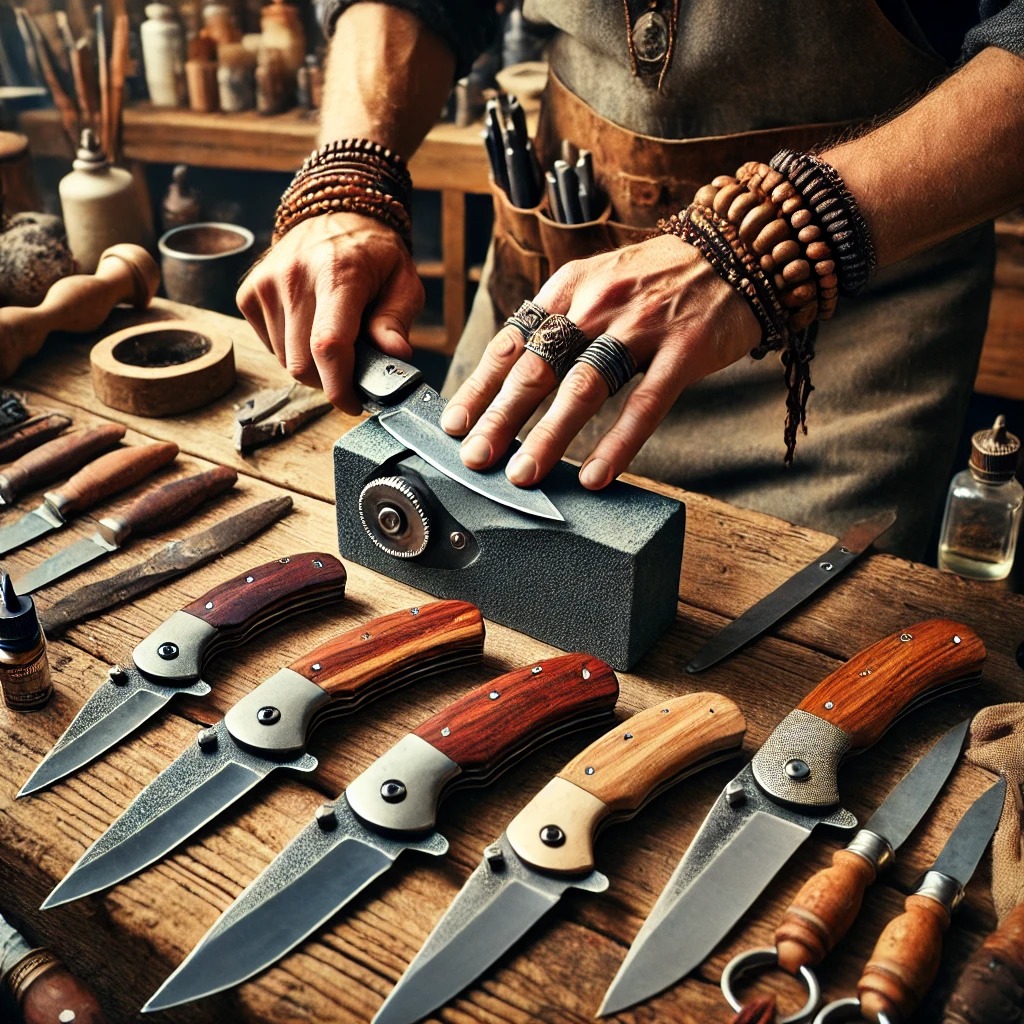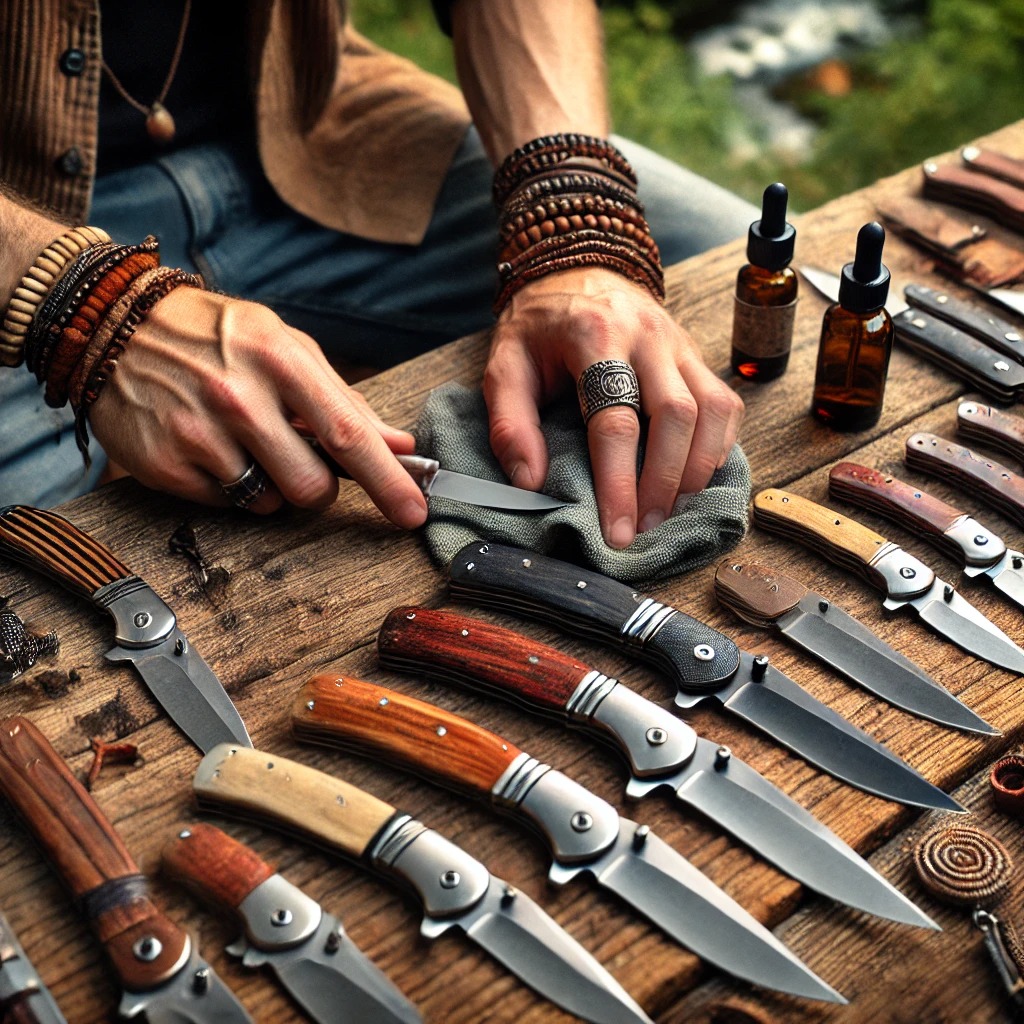THE ART OF HANDMADE KNIVES: WHY CRAFTSMANSHIP MATTERS
A handmade knife is more than just a tool; it is a work of art crafted with precision and dedication. Tosahwi knives are the embodiment of this craftsmanship, where each blade is carefully forged by skilled artisans. These knives not only deliver performance but also carry the essence of tradition, making them unique pieces in a world dominated by mass production.

The Craftsmanship Process
- Material Selection: Tosahwi uses high-quality steel and premium woods like sandalwood and oak. Each material is chosen for its durability and aesthetic appeal, ensuring that the knives not only perform well but also look beautiful.
- Forging and Heat Treatment: The steel is heated and hammered multiple times in the forging process, a traditional technique that strengthens the metal’s molecular structure. Heat treatment, or quenching, ensures that the blade maintains both flexibility and hardness, providing long-lasting sharpness.
- Grinding and Polishing: After forging, the blade is ground to the perfect edge for its intended use, whether it’s slicing, chopping, or precise cutting. Polishing adds a final touch, creating a gleaming, flawless surface that highlights the blade’s craftsmanship.

Why Choose Handmade Knives
- Uniqueness: Each handmade knife is one of a kind, with its own distinct patterns and characteristics. This uniqueness adds to its value, both as a functional tool and a collectible item.
- Durability: Handmade knives are crafted with top-tier materials and attention to detail, offering greater longevity compared to mass-produced knives.
- Artistry and Value: These knives are not just tools; they are a piece of heritage, often passed down as heirlooms, symbolizing the continuation of tradition and craftsmanship.
Conclusion
Tosahwi’s handmade knives are more than cutting instruments; they are masterpieces. By choosing a Tosahwi knife, you are investing in a combination of function, beauty, and tradition.


Comment